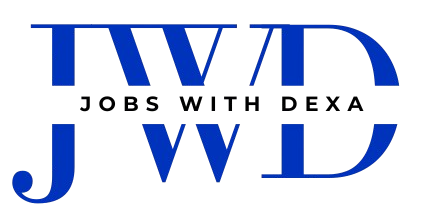The job market is at a pivotal point, with 2025 marking a significant shift in how we seek, find, and engage with work. As we look forward, several trends are emerging that will reshape the landscape of job hunting. Here, we delve into three key areas: AI in recruitment, the rise of remote work, and the expanding gig economy.
AI in Recruitment
Artificial Intelligence (AI) has been making waves in various industries, but its impact on recruitment is particularly transformative. Here’s what to expect:
- Automated Resume Screening: AI algorithms are becoming more sophisticated in filtering resumes based on specific job criteria, reducing human bias and speeding up the process. This means job seekers must optimize their applications with relevant keywords and structured formats to pass through these AI-driven systems.
- Predictive Analytics: AI isn’t just about filtering; it’s about predicting. Using historical hiring data, AI can forecast candidate success, cultural fit, and even future performance. This trend suggests that job seekers might need to prepare for assessments that go beyond traditional interviews, focusing more on skills demonstration and data-driven evaluations.
- AI-Powered Interviews: With tools like virtual assistants or AI chatbots, preliminary interviews can be conducted autonomously, assessing candidates on various parameters before human interaction. This can lead to a more streamlined process but also requires job seekers to get comfortable with technology in interviews.
- Enhanced Candidate Experience: AI is also improving the candidate journey through personalized job recommendations, real-time feedback on applications, and automated follow-ups. For job seekers, this means a more tailored job search experience, but it also places importance on maintaining an active and comprehensive online profile.
The Rise of Remote Work
The shift to remote work, accelerated by global events like the COVID-19 pandemic, is here to stay with some nuanced developments:
- Global Talent Pool: Companies are no longer restricted by geography, leading to a broader, more diverse talent pool. Job seekers can aim for positions worldwide, which increases competition but also opportunity. Preparing for virtual interviews and understanding different work cultures will become essential skills.
- Hybrid Work Models: While full remote work remains popular, hybrid models are gaining traction, where employees split time between home and office. This trend implies job seekers should be ready to discuss flexibility preferences during interviews and might need to adapt to a blend of remote and in-person work.
- Remote Work Skills: There’s an increased demand for skills specific to remote work, like digital communication, self-management, and cybersecurity awareness. Job seekers should upskill in these areas to remain competitive.
- Well-being and Work-Life Balance: As remote work becomes standard, there’s a rising focus on mental health and work-life balance. Job seekers can expect companies to highlight wellness programs and flexible hours as part of their value proposition.
The Gig Economy Expansion
The gig economy is set to grow exponentially, offering new paradigms for employment:
- Freelance Work: More professionals are choosing freelance over traditional employment for the flexibility it offers. Platforms like your job board will become crucial for connecting freelancers with short-term projects. Job seekers should focus on building a strong portfolio and networking to stand out in this space.
- Skill-Based Hiring: With the gig economy, there’s a move towards hiring based on skills rather than degrees. This trend empowers those with practical experience or specialized skills to compete for roles traditionally requiring formal education.
- Micro-Entrepreneurship: The gig economy fosters an environment where individuals can launch micro-businesses or consultancies. Job seekers might look into how they can leverage their skills for entrepreneurial ventures, using your platform to find initial clients or partnerships.
- Regulatory and Legal Aspects: As gig work grows, so do the complexities around worker rights, taxation, and benefits. Both job seekers and employers will need to be well-informed about these aspects to navigate the gig economy effectively.
As we approach 2025, the job hunting landscape will be marked by increased technological integration, flexibility in work environments, and a shift towards more fluid, project-based employment. For job seekers, this means adapting to new tools and methods of job application, focusing on continuous skill development, and understanding the nuances of working in a global, digital workforce. Employers, on the other hand, will need to refine their recruitment strategies to leverage AI, support remote and hybrid work cultures, and engage with the gig workforce strategically.
For those utilizing platforms like yours, staying ahead means embracing these trends, offering resources for skill enhancement, providing guidance on navigating AI-driven recruitment, and facilitating connections in the gig economy. The future of job hunting is dynamic, challenging, yet ripe with opportunities for those who can adapt and innovate.
Bear in mind that the trends discussed here are not exhaustive but represent major shifts that are already underway. As we continue to learn and adapt, the job market of 2025 will undoubtedly hold even more surprises and innovations. Keep your eyes open, stay flexible, and prepare to thrive in this new era of employment.

